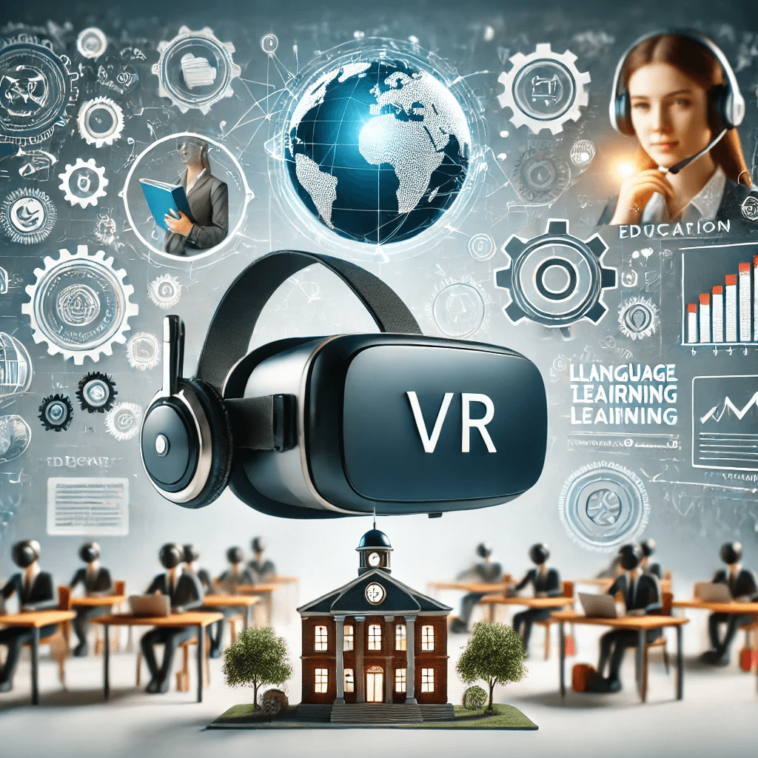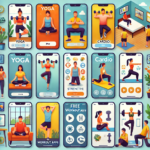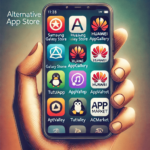Introduction
Education and training have always been areas ripe for innovation, and Virtual Reality is at the forefront of this transformation. By creating immersive, interactive environments, VR allows learners and professionals to engage with content in ways that are far more effective than traditional methods. In this article, we’ll explore some of the best VR apps that are making waves in education and training, helping to prepare students and professionals for the future.
VR Apps for Classroom Learning
Classroom learning can sometimes be challenging, with students struggling to stay engaged or visualize complex concepts. VR apps offer a solution by making learning more interactive and visually engaging.
- VictoryVR: This app provides a range of VR-based lessons across subjects like science, history, and math. It’s designed to align with school curricula and offers a new way for students to learn.
- Google Expeditions: A tool that allows teachers to take students on virtual field trips around the world. From exploring the Great Barrier Reef to touring ancient ruins, it’s a fantastic way to bring the world into the classroom.
- Nearpod VR: This app combines VR with interactive lessons, quizzes, and polls, making it a comprehensive tool for teachers who want to engage their students in a new way.
These apps show how VR can enhance the classroom experience, making learning more dynamic and engaging for students.
Professional Training VR Apps
Professional training often requires hands-on experience, which can be costly or risky to provide in a real-world setting. VR offers a safe, cost-effective alternative, allowing trainees to practice in a controlled environment.
- Oculus for Business: This platform offers a range of training simulations for industries such as healthcare, manufacturing, and retail. It allows employees to practice skills and procedures in a realistic virtual environment.
- STRIVR: A VR training platform used by companies like Walmart and Verizon. It offers simulations that help employees develop soft skills, such as customer service, as well as technical skills.
- FundamentalVR: A surgical training platform that offers realistic simulations for medical professionals. It’s designed to help doctors and surgeons practice procedures without the need for a real patient.
These apps demonstrate how VR can revolutionize professional training, providing a safer and more effective way to prepare employees for their roles.
Language Learning VR Apps
Learning a new language can be a daunting task, but VR apps are making it easier by providing immersive environments where learners can practice speaking and understanding the language.
- Mondly VR: This app offers language lessons in a VR environment, allowing users to practice speaking with virtual characters in real-life scenarios. It’s an effective way to build confidence in language skills.
- FluentU VR: A language learning app that uses real-world videos, such as movie clips and news segments, to teach new languages. The VR version of the app offers an immersive learning experience.
- Engage VR: While not exclusively a language learning app, Engage offers a platform where teachers can create virtual lessons, including language classes. It’s a versatile tool for educators and learners alike.
These apps provide an innovative approach to language learning, making it more engaging and effective than traditional methods.
Skill Development VR Apps
Whether you’re looking to learn a new skill or improve existing ones, VR apps offer a unique way to practice and develop your abilities.
- MasterpieceVR: A 3D modeling and sculpting app that allows users to create detailed models in a virtual space. It’s a powerful tool for artists and designers looking to develop their skills.
- CodeVirtually: A VR app designed to teach coding in a fun and interactive way. It offers lessons in various programming languages and allows users to see the results of their code in real-time.
- Surgical Theater: A VR platform that allows surgeons to practice procedures and refine their skills in a virtual environment. It’s a valuable tool for medical professionals looking to improve their techniques.
These apps show how VR can be used for skill development, offering a practical, hands-on approach to learning new abilities.
Conclusion
Virtual Reality is opening up new possibilities for education and training, making learning more engaging, interactive, and effective. Whether you’re a student, a professional, or someone looking to learn a new skill, there’s a VR app out there that can help you achieve your goals. The apps mentioned above are just a few examples of how VR is transforming education and training, providing a glimpse into the future of learning.




Comments
0 comments